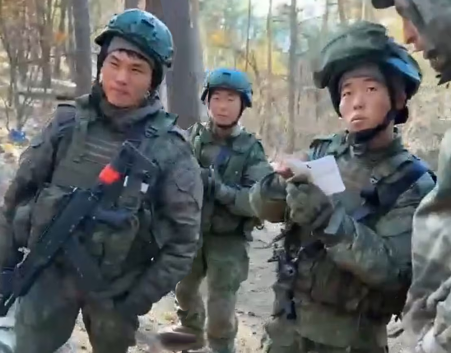The Crimean Bridge, also known as the Kerch Bridge, has strategic and political value as a symbol of Russia’s “possession” of occupied Crimea and tactical value as a logistical link from the mainland.
In order to strengthen security of the bridge, Moscow deployed export versions of the Pantsir (NATO: SA-22 Greyhound) self-propelled, medium-range combined surface-to-air missile and anti-aircraft gun systems beside the bridge at the end of August.
JOIN US ON TELEGRAM
Follow our coverage of the war on the @Kyivpost_official.
In a bid to further bolster protection for the bridge it was noted that Russia has now erected 30–meter (100 feet) high metal scaffolding towers, at either end of Tuzla Island on which parts of the bridge stand and have mounted the Pantsirs on them. Satellite images later confirmed their locations.
A YouTube video posted by “Liudmilla” illustrates the positioning of the towers alongside the bridge during which she says the radars of the systems were “active”:
The bridge has already been struck by Ukraine twice since the start of the war with Russia. In October 2022 a bomb carried in a truck damaged several spans of roadway and the adjacent rail line. In July last year an early morning USV strike caused further damage to the road section.
In April a spokesperson for Ukraine’s Main Intelligence Directorate (HUR) added to the Kremlin’s paranoia by saying a third attack on the bridge was “inevitable.” Russia has taken Kyiv’s threats seriously and has spent months installing a range of security paraphernalia on, under and around it.

Will Ukraine be Pushed Into Concessions?
These bridge defenses include barriers consisting of floating and sunken barges, anti-submarine / unmanned surface vessel (USV drones) nets, naval mines, floating barrels linked with cables, and smoke generators to mask the view of the bridge alongside increased numbers of air defense systems deployed on the coasts at either end of the bridge.
In early August satellite images showed what appeared to be preparations to build a permanent structure alongside and parallel to the bridge. Satellite images have shown metal sections which match the materials used for the new air defense towers ground dumped around the bridge, suggesting more are to come. Also visible are what appears to be anti-tank obstacles being constructed on approaches to the bridge on both sides of the Kerch strait.
The intention of placing the air defense systems on towers is to provide the Pantsir-SM systems with increased detection and engagement ranges hoping to improve their operational effectiveness. This sort of installation mirrors similar constructions around Moscow, where Pantsir systems have been installed on towers and man-made hills to protect critical assets in the Russian capital.
The particular variants of the Pantsir deployed on the Crimean Bridge are painted in desert camouflage and appear to be Pantsir-S1M export versions of the latest Pantsir Series 2 which is slowly being introduced into service.
Pantsir-2 is said to incorporate several tactical and technical upgrades including enhanced range and altitude using two types of missiles: the standard 57E6-E and the improved 57E6M-E which has a 25 kilogram (55 pound) warhead, an increased ceiling from 15 to 18 kilometers (9.3 to 11.2 miles), engagement ranges from 20 to 30 kilometers (12 to 19 miles) and a speed of 4,700 to 6,100 kph (2,900 to 3,800 mph).
You can also highlight the text and press Ctrl + Enter










